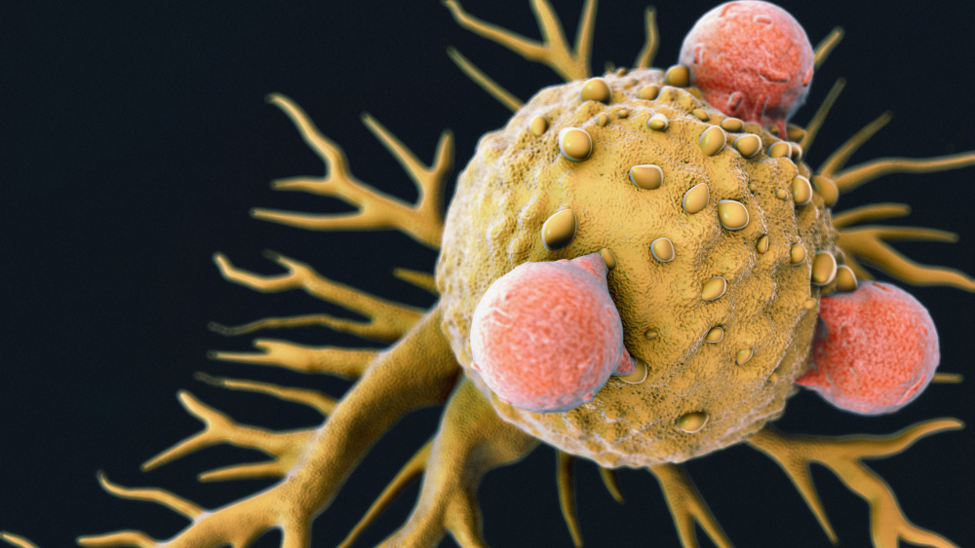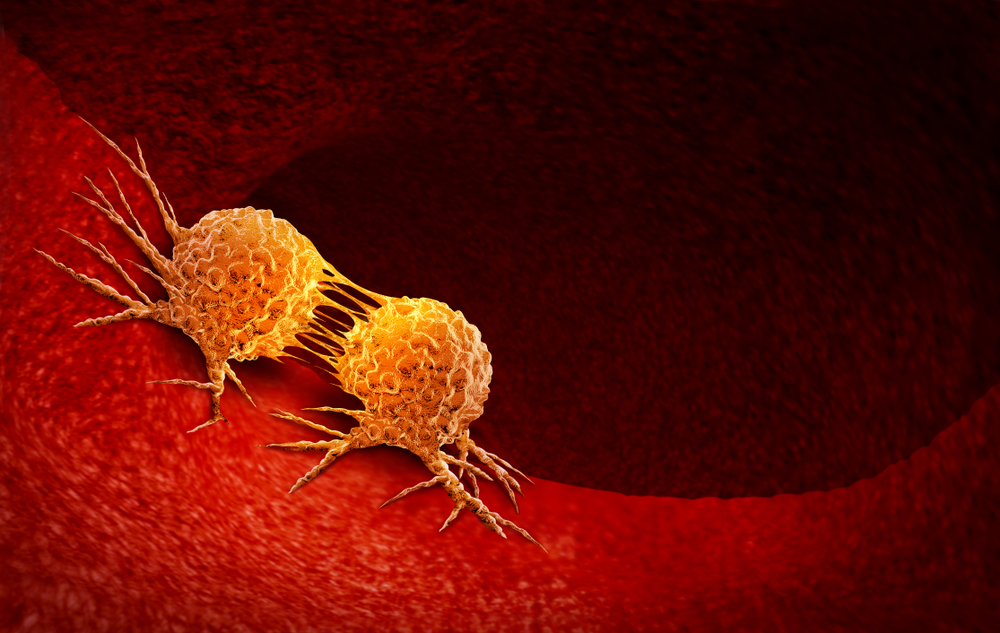Results from a Phase II clinical trial for berzosertib, a drug that targets the Ataxia Telangiectasia and Rad3-Related kinase (ATR) DNA repair protein in order to inhibit the growth and division of tumor cells, has shown significant promise in combination with chemotherapy in patients with a common type of ovarian cancer. The study was conducted by researchers at the Dana-Farber Cancer Institute.
In the study, patients with high-grade serous ovarian cancer (HGSOC) who were given berzosertib along with chemotherapy were found to have longer survival times before their disease began to progress and worsen, compared to those that only received chemotherapy. Investigators on the study say that these findings may warrant the testing of berzosertib in a range of other cancers. The study was recently published in the journal The Lancet Oncology.
Related: Study Discovers DNA Repair Pathways Involved in Link Between Alcohol and Cancer
“Our results in this Phase II trial suggest that ATR inhibition in combination with chemotherapy has the potential to offer significant benefit to patients with chemotherapy-resistant HGSOC and, potentially, other tumor types where ATR plays a key role,” said the study’s lead author, Dr. Panagiotis Konstantinopoulos, director of translational research, Gynecologic Oncology, at Dana-Farber in a press release from the institute.
ATR is a serine/threonine protein kinase which functions as a DNA damage sensor, detecting damage incurred from genotoxic stresses such as ionizing radiation (IR), ultraviolet light (UV) or DNA replication stalling and activate cellular checkpoint signaling pathways in response.
It phosphorylates key checkpoint proteins including BRCA1, CHEK1, MCM2, RAD17, RPA2, SMC1, RB1 and p53/TP53, which collectively inhibit DNA replication and cell division, and instead, promote DNA repair, recombination or apoptosis if the damage is too extensive to repair.
While DNA damage is a fundamental cause of cancer, it also creates a vulnerability or weakness in tumor cells because the DNA can be further damaged, or faulty repair mechanisms can prevent it from being fixed. Therefore, drugs that target repair proteins can hinder the ability of tumor cells to mend their DNA, thereby blocking DNA replication, cell division and cell survival.
High-grade serous ovarian cancers exhibit increased replication stress due to deleterious TP53 mutations that cause a loss of the G1/S checkpoint, premature S phase entry, alterations of homologous recombination repair genes and increased expression of oncogenic drivers such as MYC. Given that ATR is heavily involved in repairing DNA under these conditions in cancer cells, and even moreso when treated with chemotherapy, investigators on the study hypothesized that ATR inhibition could interfere with cells’ ability to repair and replicate their DNA.
“The unbridled growth of cancer cells places enormous stress on the process of DNA replication,” Konstantinopoulos explained. “ATR helps them survive that stress: its job is to coordinate the halting of the cell cycle to check if the DNA is intact or needs repair. Drugs that inhibit ATR – that deprive tumor cells of such repair – have the potential to be particularly effective in some cancers.”
In the multi-center, open-label, randomized Phase II study, 70 women with recurrent, high-grade serous ovarian cancer resistant to platinum-based chemotherapy were enrolled in the trial, which involved 11 different centers in the US Experimental Therapeutics Clinical Trials Network. Half of the participants in the study were randomly assigned to receive standard chemotherapy, i.e. intravenous gemcitabine (1000 mg/m2), on day one and day eight, while the other half were treated with gemcitabine plus intravenous berzosertib (210 mg/m2) on day two and day nine of a 21-day cycle until disease progression or intolerable toxicity.
In patients that received gemcitabine alone, the estimated median progression-free survival (the period in which their disease was in retreat or stable) was 14.7 weeks, compared to 22.9 weeks for those that were administered both gemcitabine and berzosertib. Among patients with the most platinum-resistant tumors (i.e. those who had progressed within three months from prior platinum-based chemotherapy), the difference was even greater: nine weeks for gemcitabine versus 27.7 weeks for gemcitabine and berzosertib, stated the report.
Participants in the two groups experienced similar side effects. However, patients that received the combination therapy had a higher rate of thrombocytopenia, or low blood platelet levels.
These findings demonstrate the potential effectiveness of exploiting tumor cell vulnerabilities related to DNA repair mechanisms in the therapeutic targeting of cancers.












Join or login to leave a comment
JOIN LOGIN